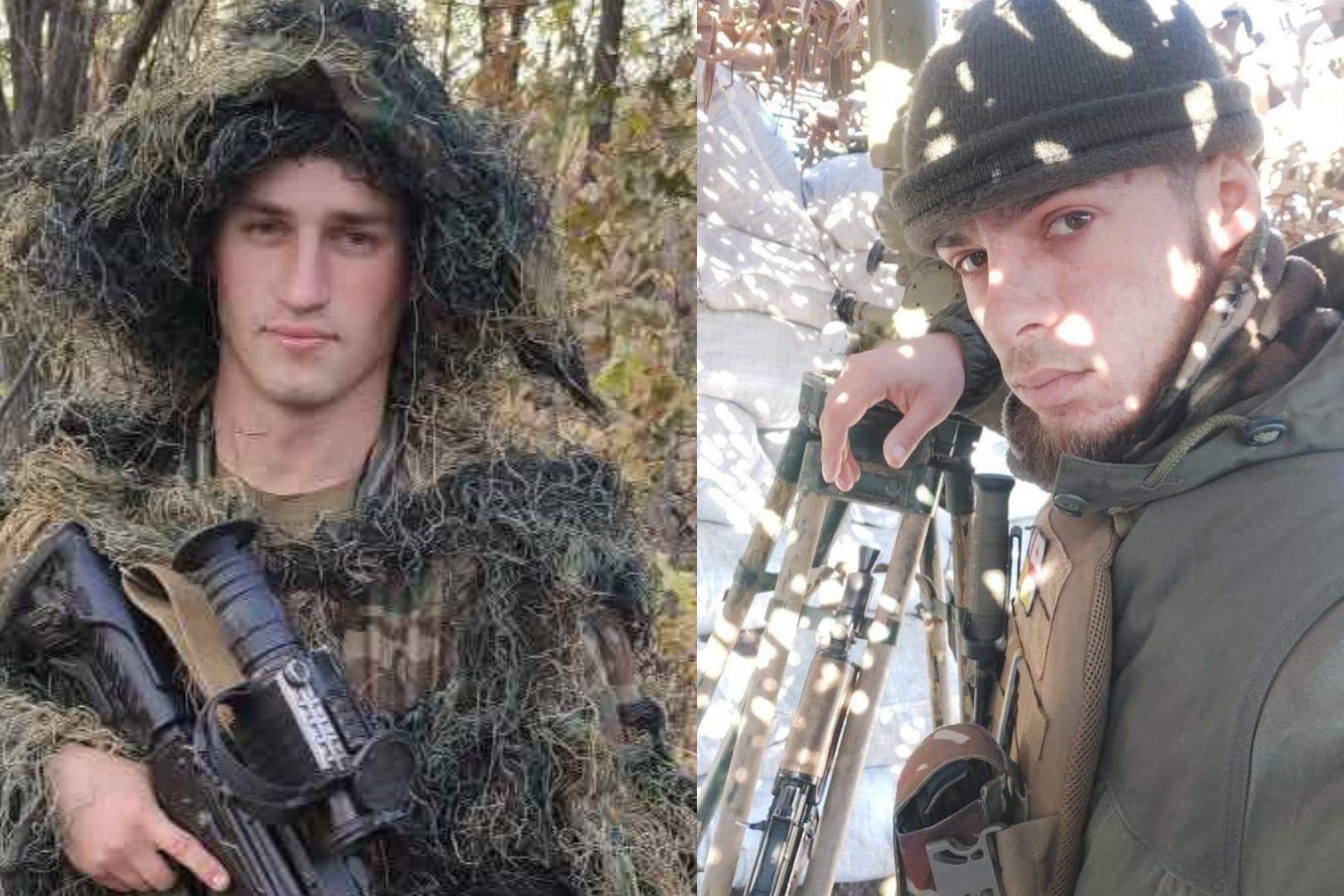Two Ukrainian soldiers running London Marathon to show ‘unbreakable’ spirit
The servicemen are raising money for two injured Ukrainian soldiers.

Your support helps us to tell the story
From reproductive rights to climate change to Big Tech, The Independent is on the ground when the story is developing. Whether it's investigating the financials of Elon Musk's pro-Trump PAC or producing our latest documentary, 'The A Word', which shines a light on the American women fighting for reproductive rights, we know how important it is to parse out the facts from the messaging.
At such a critical moment in US history, we need reporters on the ground. Your donation allows us to keep sending journalists to speak to both sides of the story.
The Independent is trusted by Americans across the entire political spectrum. And unlike many other quality news outlets, we choose not to lock Americans out of our reporting and analysis with paywalls. We believe quality journalism should be available to everyone, paid for by those who can afford it.
Your support makes all the difference.Two amputee Ukrainian soldiers said they are taking on the London Marathon because they want to show that Ukrainians are “unbreakable”.
Active Ukrainian serviceman Georgiy Roshka, 32, had his arm amputated in a bunker during the siege of Azovstal, while fellow soldier Oleksiy Rudenko, 28, lost his leg after he stepped on a mine during a combat mission in eastern Ukraine, and now both men use prosthetics.
The 42km run in London will be the servicemen’s first marathon, with Mr Rudenko telling the PA news agency: “We are very eager to start. We’re ready and we’re not afraid.”
“I want as many people as possible to see that Ukrainians can beat the marathon even without limbs and that we are unbreakable and unstoppable,” he added.
Mr Roshka joined the Ukrainian army in 2017 after Russia occupied Crimea.
In May 2022, he took up a combat position in the Azovstal steel plant, the heart of a pocket of resistance in the then-besieged city of Mariupol, which is now under Russian occupation.
After being hit by a mine, he retreated to a bunker in the steel plant where his arm was amputated.
Less than two weeks later he was forced to surrender and was taken captive along with his comrades.
Mr Roshka said he is “still very emotional” about the atmosphere inside the steel plant.
“People were in a very bad situation so we were just waiting there for the final moment of our life because no-one thought there was going to be survival,” he said.
“Some people decided it was going to be maybe easier to shoot themselves because it was a desperate situation.”
Mr Roshka was held captive with his fellow Ukrainian soldiers in a hospital in Donetsk for a month-and-a-half before he was eventually freed as part of a prisoner swap.
He said: “I lost a lot of blood so I didn’t really care at the moment we were taken captive. I felt really, really bad and I didn’t really care what happened next.
“During captivity itself, it was really hard. We were humiliated both physically and mentally. We were hit and verbally abused.
“When the arm was amputated in Azovstal the conditions were really bad and I couldn’t properly treat it there and in captivity I didn’t get good healthcare so the arm started to rot.”
Mr Roshka was initially suspicious when placed on a bus driving to Ukraine but when he realised he was being freed, he felt “happiness”.
“We started to have faith and then once we saw the Ukrainian flag, almost everyone started crying and we were really happy,” he said.
Mr Roshka went through “a hard path of recovery, prosthetics, and rehabilitation” in Ukraine before returning to military service.
On running the London Marathon, he said: “This is not only a test of my character, but also an opportunity for me to support my fellow brothers who were seriously wounded.”
Mr Rudenko, who had to leave the interview early after air raid sirens rang out in Odesa, joined the Ukrainian army in 2020 and held a position in Donetsk for six months before stepping on a mine during a combat mission and losing his leg.
“We were walking through a forest and we de-mined three mines but the fourth mine was hidden under the ground. It wasn’t visible so I stood on it,” he told PA.
“Then after the explosion I saw that my leg was gone so I quickly applied a tourniquet and we decided to fall back.”
Mr Rudenko, now an army instructor, continued: “I was taken to Kyiv first and underwent nine operations and when I spoke to the doctor I asked them if I could run after the amputation.
“The doctor said that in order to run, I would need a sports prosthetic so to do that they needed to cut the upper leg so this is why I had another operation to cut the leg even more.”
After undergoing nine operations, it took Mr Rudenko five months to fully adapt to his prosthetic leg.
He said: “The first couple of weeks you have to walk 12 minutes a day on prosthetics but I didn’t care and I walked two or three hours. You really need to move. If you move a lot, it’s easier to adapt.”
The servicemen are raising money for two injured Ukrainian soldiers through the Citizen Charity Foundation.
Mr Rudenko concluded: “I am running 2024 London Marathon to support as many seriously injured fellow brothers with amputations as possible.
“My goal is to spread awareness and raise funds for seriously injured Ukrainian servicemen who have lost limbs.”